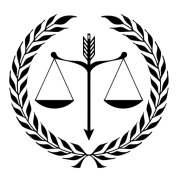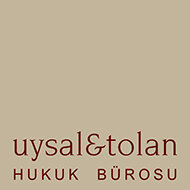Best International Trade Law Lawyers in Sisli
Share your needs with us, get contacted by law firms.
Free. Takes 2 min.
List of the best lawyers in Sisli, Turkey
About International Trade Law in Şişli, Turkey
International Trade Law in Şişli, Turkey, involves regulations and agreements governing commercial transactions across international borders. It manages international commerce's complexities, including trade treaties, tariffs, trade barriers, and the import and export of goods. Given Şişli's status as a vibrant business district in Istanbul, it serves as a key hub for international trade activity. Lawyers specializing in this field provide guidance on compliance with local regulations and international agreements to facilitate smooth commercial exchanges.
Why You May Need a Lawyer
Individuals and businesses engaged in international trade may face numerous legal challenges requiring professional assistance. Common situations needing a lawyer include negotiating international contracts, resolving disputes involving cross-border transactions, ensuring compliance with import/export regulations, navigating customs issues, protecting intellectual property rights overseas, and understanding international trade sanctions and tariffs. Lawyers help mitigate risks and enhance trade activities through their expertise.
Local Laws Overview
Şişli, part of Istanbul, operates under Turkish trade laws infused with international regulations. Key local laws relevant to International Trade Law include the Turkish Commercial Code, which outlines general principles for business operations, and trade-specific regulations. Turkish customs regulations govern the importation and exportation of goods, while various free trade agreements Turkey is a part of might also influence trade activities. Moreover, understanding compliance with the Turkish Competition Authority's rules is essential for businesses to avoid anti-competition practices.
Frequently Asked Questions
What is the primary legislation governing international trade in Turkey?
The Turkish Commercial Code, along with specific trade-related regulations, governs international trade in Turkey.
Are there any restrictions on imports and exports?
Yes, Turkey imposes regulations and restrictions to protect domestic industries and ensure safety standards through its customs laws, which may involve tariffs, quotas, and prohibitions on certain goods.
How do free trade agreements affect businesses in Şişli?
Free trade agreements reduce barriers to transacting across borders by lowering tariffs and other impediments, facilitating easier trade for businesses operating in Şişli.
What is the procedure for resolving international trade disputes?
Dispute resolution can proceed through international arbitration, mediation, or litigation in Turkish courts, depending on contract stipulations and business needs.
How can I protect my intellectual property during international trade?
Trademark registration and patents under Turkish law, along with international treaties like the Paris Convention, afford protections for intellectual property rights.
What role does the Turkish Competition Authority play in international trade?
The Turkish Competition Authority ensures fair competition by enforcing regulations against anti-competitive behavior, which can impact international trade practices.
Are there special considerations for e-commerce in international trade?
Yes, e-commerce involves specific compliance with electronic regulations, adapting to payment methods, consumer protection laws, and international data protection standards.
What documentation is required for international trade transactions?
Key documents include commercial invoices, bills of lading, packing lists, certificates of origin, and any required licenses or permits.
How are tariffs structured in Turkey?
Turkey employs a structured tariff schedule aligned with the Harmonized System and adjusted based on international trade agreements.
What should a contract for international trade include?
Contracts should outline the terms of sale, payment methods, dispute resolution mechanisms, delivery terms, and applicable laws to ensure clarity and protection.
Additional Resources
Useful resources include the Turkish Ministry of Trade, the Istanbul Chamber of Commerce for local business insights, and the International Trade Centre, which offers global trade guidance. The Turkish Exporters Assembly also provides relevant data and reports on trade trends.
Next Steps
If you require legal assistance in International Trade Law, start by consulting a lawyer specialized in this field. Collect all relevant documents and clearly define your legal needs and challenges. This will facilitate a productive discussion. Consider reaching out to local law firms or individual practitioners known for their expertise in international trade to get the best advice and representation for your situation.
Lawzana helps you find the best lawyers and law firms in Sisli through a curated and pre-screened list of qualified legal professionals. Our platform offers rankings and detailed profiles of attorneys and law firms, allowing you to compare based on practice areas, including International Trade Law, experience, and client feedback.
Each profile includes a description of the firm's areas of practice, client reviews, team members and partners, year of establishment, spoken languages, office locations, contact information, social media presence, and any published articles or resources. Most firms on our platform speak English and are experienced in both local and international legal matters.
Get a quote from top-rated law firms in Sisli, Turkey — quickly, securely, and without unnecessary hassle.
Disclaimer:
The information provided on this page is for general informational purposes only and does not constitute legal advice. While we strive to ensure the accuracy and relevance of the content, legal information may change over time, and interpretations of the law can vary. You should always consult with a qualified legal professional for advice specific to your situation.
We disclaim all liability for actions taken or not taken based on the content of this page. If you believe any information is incorrect or outdated, please contact us, and we will review and update it where appropriate.
















